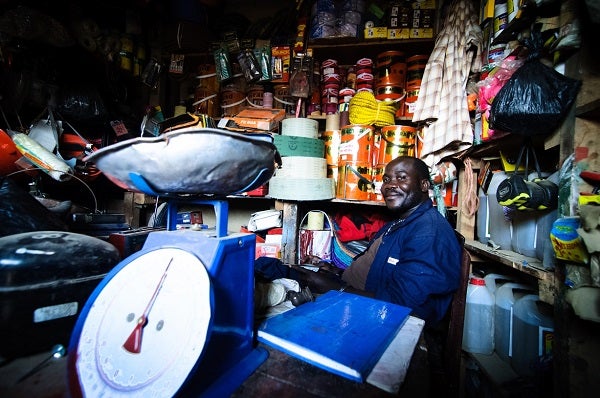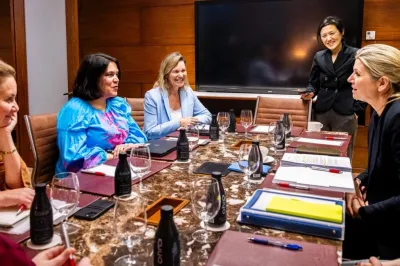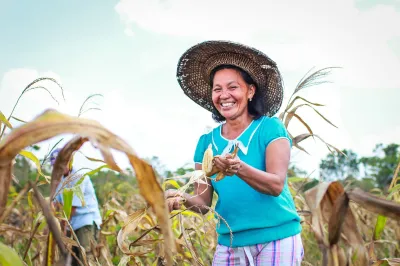Building a Digital Finance Ecosystem in Zimbabwe
There’s a familiar story rolling out across Africa (and around the world): mobile money services launch, millions register for the service, but few become active users. Of those who are active, close to 90 percent of those transactions are airtime top-ups or person-to-person transfers, falling short of true financial inclusion. Coupled with declining voice revenues, mobile operators are increasingly looking toward a next generation of financial and non-financial services that leverage mobile money.

In many countries, mobile operators have focused their diversification efforts on a relatively predictable progression of products: airtime topups and P2P, bill payments, payroll and bulk payments, linking to banks, merchant payments, and perhaps international remittances. In Zimbabwe, the leading mobile operator, Econet, has followed a similar pattern, but what sets them apart is their parallel efforts to drive mobile money usage in other sectors, including energy, education, agriculture, and health.
Another unique factor is that innovation until recently has largely been driven from within the company rather than through outside players. The EcoCash motto “Live life the EcoCash way” provides a hint at the company’s ambitions to touch on almost every aspect of their customers’ lives, with EcoCash as the payment mechanism at the core. Econet has taken on the role of building out an entire ecosystem of services that are meant to both improve the lives of their customers while also generating transaction volume for their mobile money service.
Sample products
- Econet Solar: With only 40% of the population having access to on-grid electricity, there is significant latent demand for household power in Zimbabwe. Econet Solar offers solar lanterns and a home power station, available with short-term financing from Econet, with payments made via EcoCash.
- EcoSchool: EcoSchool offers zero-rated access to digital content for tertiary students in Zimbabwe. Students access digital books, e-courses, mobile courses and job alerts via a web-based platform at a fraction of the cost.
- EcoFarmer: EcoFarmer provides a range of services to the large number of agricultural households in Zimbabwe. What began as an information service has evolved into a program offering insurance, savings products, loans and other valuable services to 700,000 subscribers in the farming community.
- Ruzivo: Ruzivo is a digital learning platform for primary and secondary school students. The service was developed to compliment the government’s efforts to improve the national pass rates in Zimbabwe. By making content accessible at an affordable rate of US$ 2 per month, Ruzivo aims to reach all of Zimbabwe’s 3.6 million primary and secondary school learners.
While many mobile operators around the world are feeling the pressure to expand mobile money use, few, if any, have directly entered into other sectors in the manner that Econet has. Why has Econet taken this direct intervention approach?
First, their market dominance provided them with the brand recognition and resources to test and roll out products more quickly than other players. Under pressure to increase the volume of EcoCash transactions, the fastest path was to do it themselves.
Second, the startup community in Zimbabwe is just getting its legs. A number of incubators and hubs now exist and are fostering a new era of technological innovation in Zimbabwe. But just a few years ago this wasn’t the case and innovation was driven from within Econet and other large corporations. Today, Econet is a supporter of one such incubator and involved in holding hackathons and contests to find their next big ideas. Opening their doors to this community of innovators will likely generate many more innovate products and mobile money use cases than would be possible in-house.
Third, and related to the second, is the issue of Application Programming Interfaces (APIs). APIs facilitate communication between two software programs, and are an important ingredient in the growth of products and services that use mobile money. Econet has opened their API to a group of partners and aggregators, enabling connections to several online merchants, e-commerce sites, utility companies, and remittances partners. In a similar fashion, Safaricom recently began opening access to their APIs in Kenya. Start-ups are calling for even more openness from mobile money operators, so perhaps this is the beginning of a trend toward more open systems which will support further innovation.
Econet’s focus on the development of EcoCash seem to be paying off. Econet Services, a division of Econet established to manage EcoCash and the other overlay services, contributed 11% to overall revenue in the first half of 2015, up from 7% in the same period the previous year. Despite this success, however, not all of their new business lines have taken off at scale. Difficult economic conditions have crippled Econet’s ability to offer products on longer-term credit, a critical ingredient for the success of similar products in other markets.
But there’s reason to remain optimistic. Emerging solutions, such as a solar power unit or clean water solution that one can pay off in small amounts over time or an education savings product that balances discipline and flexibility, are the type of real-life applications customers want. Continued innovation, openness to partnerships, and access to APIs will drive the future of mobile money and transition it from an airtime top-up service to an enabler of products and services that transform lives for the better.




Add new comment